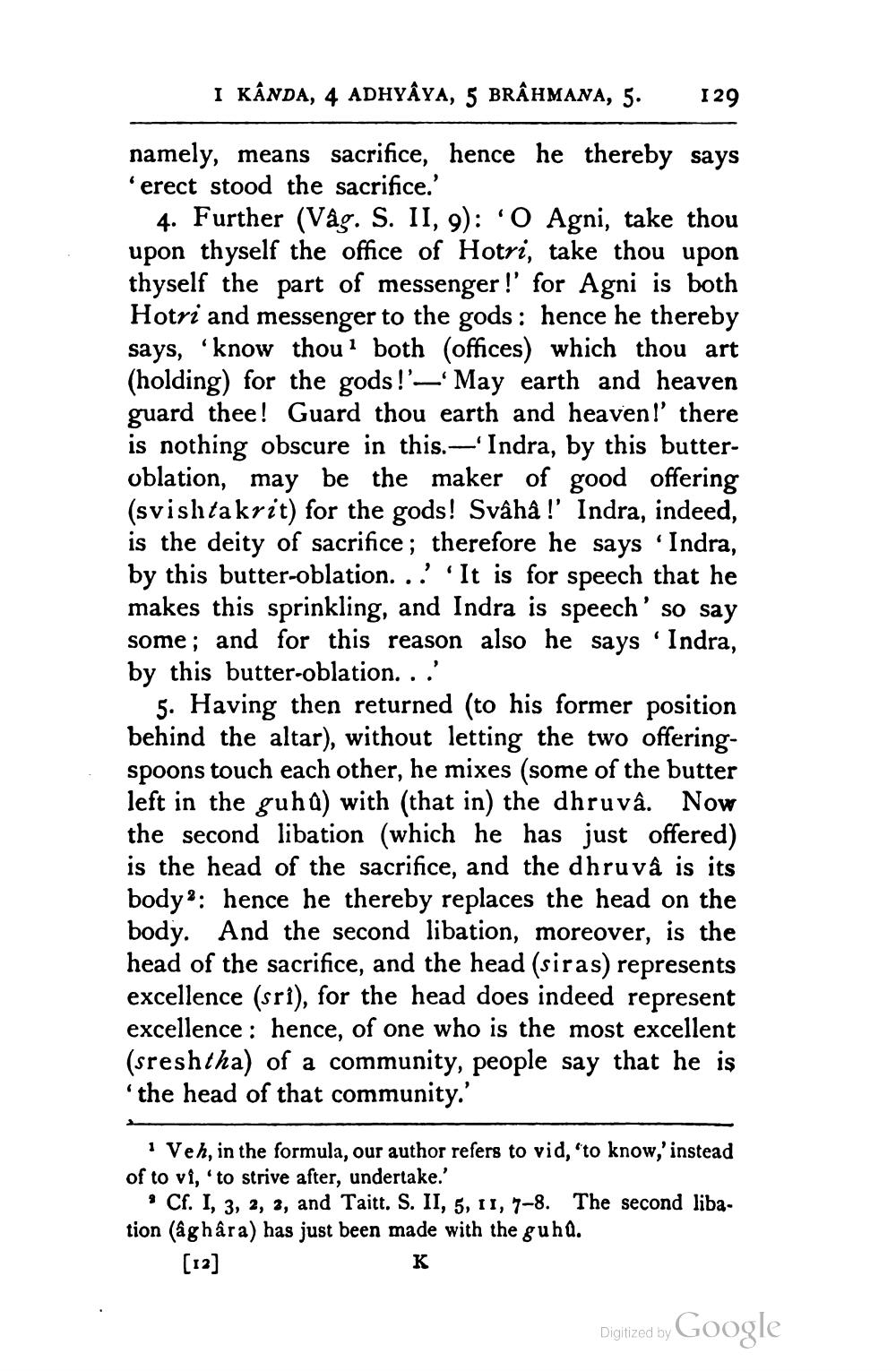________________
I KÂNDA, 4 ADHYAYA, 5 BRÂHMANA, 5.
129
namely, means sacrifice, hence he thereby says erect stood the sacrifice.'
4. Further (Våg. S. II, 9): 'O Agni, take thou upon thyself the office of Hotri, take thou upon thyself the part of messenger !' for Agni is both Hotri and messenger to the gods : hence he thereby says, “know thou? both offices) which thou art (holding) for the gods!' - May earth and heaven guard thee! Guard thou earth and heavenl' there is nothing obscure in this.—'Indra, by this butteroblation, may be the maker of good offering (svishta krit) for the gods! Svâhâ !' Indra, indeed, is the deity of sacrifice; therefore he says 'Indra, by this butter-oblation. ..' 'It is for speech that he makes this sprinkling, and Indra is speech' so say some; and for this reason also he says Indra, by this butter-oblation. ..'
5. Having then returned (to his former position behind the altar), without letting the two offeringspoons touch each other, he mixes (some of the butter left in the guha) with (that in the dhruvâ. Now the second libation (which he has just offered) is the head of the sacrifice, and the dhruva is its body?: hence he thereby replaces the head on the body. And the second libation, moreover, is the head of the sacrifice, and the head (siras) represents excellence (sri), for the head does indeed represent excellence: hence, of one who is the most excellent (sreshtha) of a community, people say that he is 'the head of that community.
1 Veh, in the formula, our author refers to vid, 'to know,'instead of to vi, to strive after, undertake.'
Cf. I, 3, 2, 2, and Taitt. S. II, 5, 11, 7-8. The second liba. tion (âghara) has just been made with the guha.
[12]
Digitized by Google




